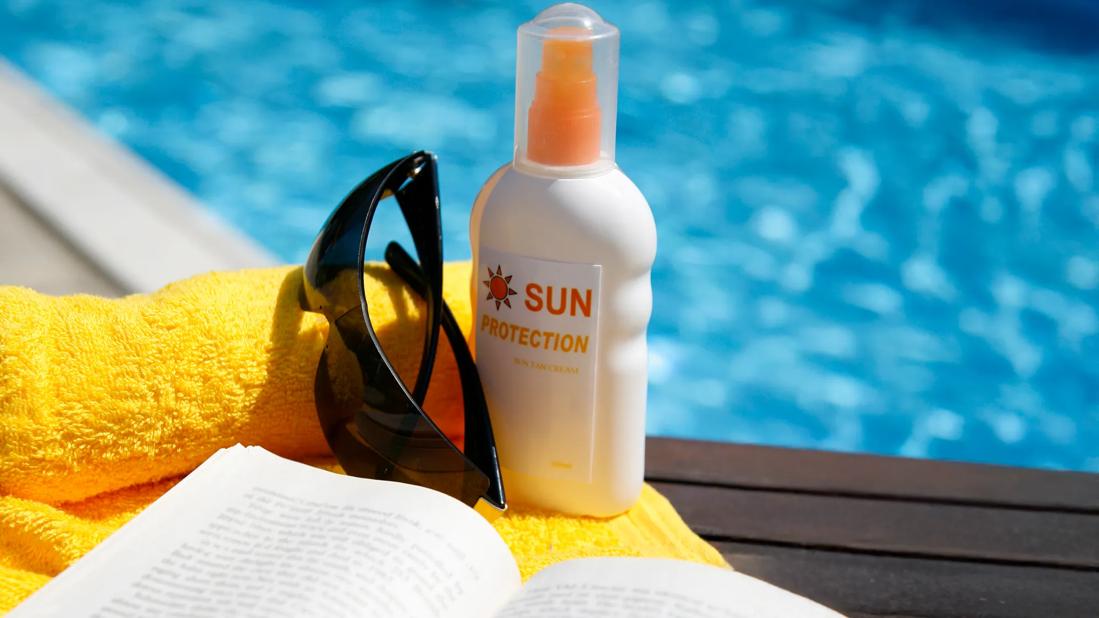You know it’s not good if you’ve been holding onto it for more than three years or if it’s changed in color, consistency or smell

Image content: This image is available to view online.
View image online (https://assets.clevelandclinic.org/transform/d6a76e12-8f67-4585-bdaa-57cf808b2890/sunscreen-towel-pool-182225805-r)
Bottle of sunscreen, pair of sunglasses, book and towel by a pool
You read that right: Sunscreen can expire!
Advertisement
Cleveland Clinic is a non-profit academic medical center. Advertising on our site helps support our mission. We do not endorse non-Cleveland Clinic products or services. Policy
While we try not to put an expiration date on all things summer fun, your sunscreen can expire, especially if it’s stored incorrectly or sits unused for too long.
But does that mean you have to throw away your sunscreen and replace it with a new one? Or can expired sunscreen still be useful?
Dermatologist Kathryn Anderson Sutton, MD, answers these burning questions.
Like anything else in your medicine cabinet, sunscreen has a shelf life. Its active ingredients naturally break down over time. So, unless otherwise noted on the label, sunscreen lasts for about three years. But that’s only if it’s been stored properly. If it’s been left in the dredges of a hot car, in a humid environment or in an area where it’s been exposed to sunlight, sunscreen degrades at a much faster rate.
“Realistically, if you’re using sunscreen every day, the way it’s directed, each bottle shouldn’t last you more than a few weeks or a couple of months,” notes Dr. Anderson Sutton.
When sunscreen expires, its active ingredients are no longer effective. That means any UV protection you would have had from a fresh bottle of sunscreen is likely lost. Using expired sunscreen increases your risk of:
Advertisement
To be clear: It’s not the sunscreen that causes these negative outcomes — it’s the amount of time you spend in the sun without protection.
“A lot of people think that sunscreen makes them invincible, but if it’s old or expired, you’re actually susceptible to getting burnt because it’s no longer effective,” stresses Dr. Anderson Sutton.
Expired sunscreen will often have changes in color, consistency and smell. Mineral- and chemical-based sunscreens break down differently.
If a mineral-based sunscreen goes bad, you might notice a grittiness or little pebbles in the formula. It’s also hard to rub expired mineral sunscreens into your skin.
Chemical-based sunscreens tend to go bad more quickly, especially if they’ve been left in the sun for long periods of time. If a chemical-based sunscreen has been oxidized (meaning it’s been exposed to oxygen for too long), it could potentially cause an allergic skin rash that looks like a blistering sunburn. When this type of sunscreen expires, it may become yellow, watery and won’t spread well.
To keep your sunscreen safe and effective for as long as possible, you’ll want to:
Replace your sunscreen every summer ― or every month if you’re using it as often as you should. Store your sunscreen in a cool, dry area over the winter. And if you’re holding onto a bottle of sunscreen that has an unclear expiration date, it’s best to just go get another one and start fresh.
Advertisement

Sign up for our Health Essentials emails for expert guidance on nutrition, fitness, sleep, skin care and more.
Learn more about our editorial process.
Advertisement
Several conditions, like vitiligo and fungal infection, can cause a loss of pigmentation, leading to white spots or patches on your skin
This cooling gel can help soothe sunburned skin, but it can’t cure the burn
Look for a UPF rating of 50+ for optimal protection against UV rays
A sunburn will leave you itchy and red, while sun poisoning can feel like an allergic reaction
A cool shower, aloe vera gel, anti-itch treatments and cool compresses can provide fast sunburn relief
SPF stands for ‘sun protection factor’ — it’s a measure of how much protection you’re getting before a sunburn is possible
This ‘poisoning’ is actually a severe sunburn that seems similar to an allergic reaction
When outside, protect your skin from damaging UV rays with a fresh layer of sunscreen at least once every two hours
Although it could be used as a moisturizer, this new trend is not recommended
Communicating clear limits helps protect your time, energy and emotional well-being
High cholesterol can be genetic, but testing and treatment can lower your heart disease risk